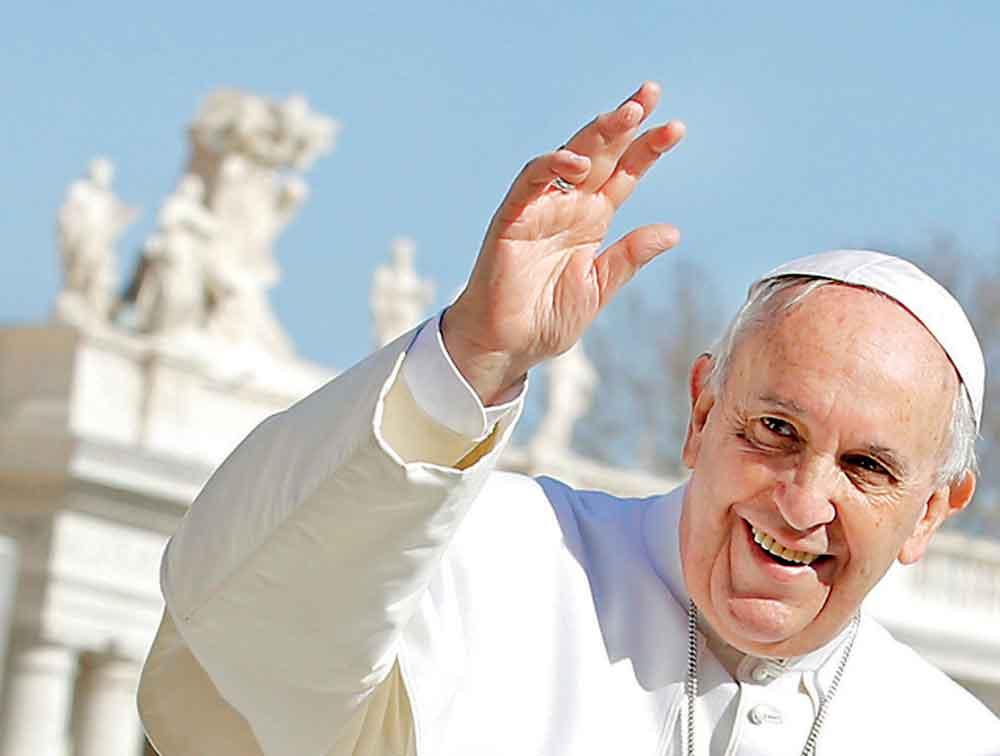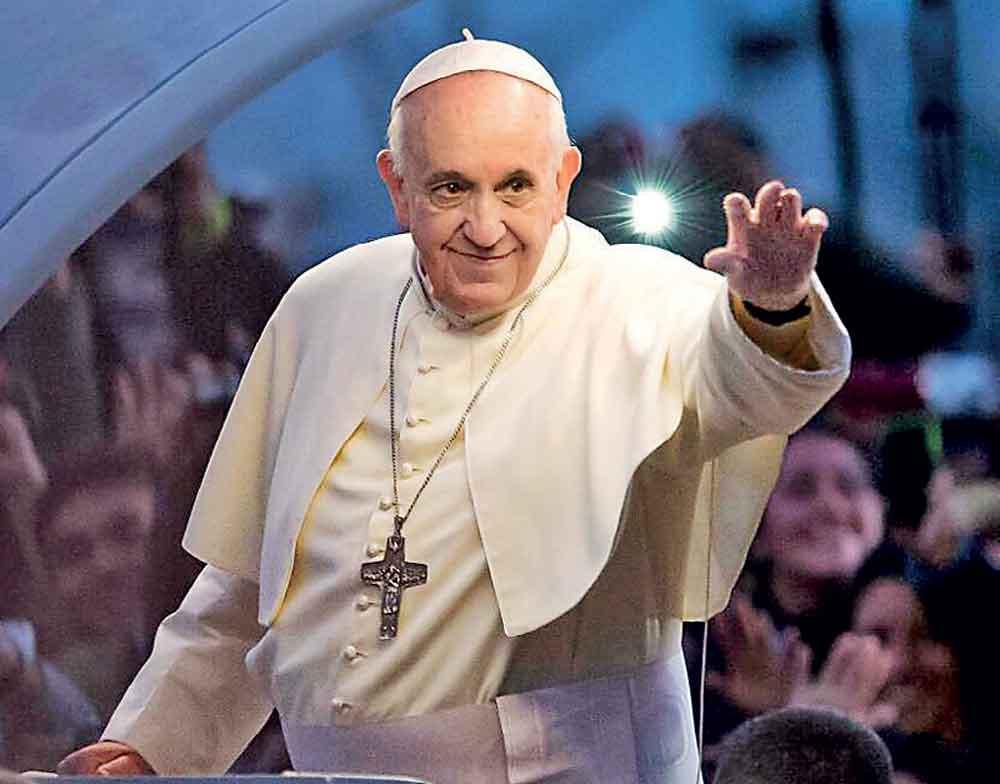
In 2013, Pope Francis warned the world of a crisis, far more subtle and far more dangerous, than war, poverty, or disease, which he referred to as “the globalisation of indifference” - a slow turning away of society at large from responsibility, because we believe that the suffering of others is not our problem. “Why should I care?” has become the anthem of a world slowly forgetting how to empathise. We live increasingly in a world where we excuse ourselves from identifying with the pain and suffering of others, living as we do in proverbial “ivory towers” and believing that “it’s not our problem”.
“We have become used to the suffering of others: it doesn’t affect me; it doesn’t concern me; it’s none of my business.” - Pope Francis, Homily in Lampedusa (2013)
 Pope Francis has not been the first person to call out society for this apathy, nor will he be the last. Almost every Grade 4 student in our country learns the poem monawada muththe mokada karanne ^fudkjo uq;af;a fudlo lrkafka&, but how many pay attention? And when no one bothers, the crisis ends up affecting us all.
Pope Francis has not been the first person to call out society for this apathy, nor will he be the last. Almost every Grade 4 student in our country learns the poem monawada muththe mokada karanne ^fudkjo uq;af;a fudlo lrkafka&, but how many pay attention? And when no one bothers, the crisis ends up affecting us all.
A Lesson in Humility
Pope Francis was an individual of simple choices which had profound consequences. His path was a different one. It was one of simplicity and solidarity. He chose not to live in the palatial Apostolic residence and opted instead for a modest guesthouse. He chose a simple Ford (which was pointed out to me on one of my visits to the Vatican!) over the papal limousine. He opened the Vatican Museums to the homeless. He rejected acts of worship directed at him, refusing to let people kneel or kiss his ring (myself included!). None of these were aesthetic choices. They were moral ones, grounded in a conviction that leadership must be rooted in humility, not grandeur. Pope Francis “walked the talk”, demonstrating for the world what it meant to dismantle walls between faith and doubt, between privilege and poverty, and between power and powerlessness.
When a Girl Guide scarf was placed around his neck, he received it with joy and respect, recognising the quiet, persistent power of grassroots movements like the World Association of Girl Guiding and Girl Scouting
In 2014, I had the rare and, if I may say so, blessed privilege of meeting Pope Francis during a private audience at the Vatican, arranged for delegates attending the 50th World Conference of the International Catholic Conference of Guiding. It is difficult to put into words the feeling of meeting him. He had a radiance around him that was sensed rather than visible, and I knew that I was in the presence of unmistakable goodness.
When a Girl Guide scarf was placed around his neck, he received it with joy and respect, recognising the quiet, persistent power of grassroots movements like the World Association of Girl Guiding and Girl Scouting. He listened deeply. He saw everyone.

Reframing the Solution
When Pope Francis wrote Laudato Si’, he spoke not only to Catholics but to the world. He reminded us that climate change is not just a scientific or economic issue. Rather, it is a moral one. And it was this moral clarity that helped bring world leaders, including former US President Barack Obama, to the table to sign the Paris Accord. Pope Francis believed that our shared home could only be saved through shared action, and that the language of responsibility (an “old-fashioned” concept for many!) may well be the very instrument that saves our planet from destruction.

Long term survival can never be about grand gestures. It is quiet, everyday decisions that build a different kind of world. Pope Francis’ message was clarity itself. Everything is connected. The fate of the oceans, the quality of our air, the dignity of the poor, the choices of the wealthy – they are all woven into the same fabric. Ignore one strand, and the entire tapestry of life begins to fray.
A Game Where Everyone Loses
One version of the crisis Pope Francis refers to is what economists call the Tragedy of the Commons, a dilemma where individuals, acting in their own self-interest, destroy shared resources. Take overfishing. If one fishery harvests a little more than it should, it might enjoy a temporary gain. But if every fishery does the same, the oceans collapse. According to the
United Nations, over one-third of the world’s fisheries are now beyond biological limits. Or consider climate change.
Every country would be better off if we all reduced carbon emissions, but each one hopes the others will do it first (with some of the larger, key culprits blatantly refusing to do so and looking for loopholes in treaties such as the Kyoto Protocol to avoid their responsibilities altogether!). The end result? We all suffer. It is not unlike the Prisoner’s Dilemma in game theory, where two players who would both benefit from cooperation, but fearing betrayal by the other, choose self-preservation over shared progress. When this pattern expands across societies, it becomes the crisis Pope Francis warned us about: a world where everyone acts alone and everyone loses together. The pattern is always the same.
No one means to cause harm, however by refusing to act together, we end up guaranteeing collective failure. Pope Francis did not however stop at diagnosis. He chose to demonstrate the solution, leading by example. He taught us that the antidote to global indifference is personal responsibility. That change does not come from waiting for someone else to act. It comes when individuals, quietly and without recognition, choose to care.
Pope Francis was an individual of simple choices which had profound consequences. His path was a different one. It was one of simplicity and solidarity
The Kindness that Carries the World
Pope Francis showed us that greatness lies not in the spectacle, but in the refusal to look away. There is a quiet strength in taking responsibility for what is not directly yours, and deep courage in refusing to say, “It’s not my problem.” And in a world overwhelmed by the noise of selfinterest, it is the almost silent voices of those who still care that carry the world forward.
Pope Francis reminded us of this. Not through commands. But through choices. Through presence. Through a life that asked us, gently but firmly, to do the same.
And this is the life lesson our students (not to mention, all of us!) must learn: that responsibility is not just a civic duty, but a deeply human one. That when we shield ourselves from the world’s pain, we may temporarily protect our peace, but we ultimately forfeit our power to heal. In a world increasingly trained to mind its own business, perhaps the most radical thing we can teach the next generation is this: your neighbour’s problem is your problem. And if it isn’t today, it will be tomorrow. Because in the end, when no one cares, everyone pays. And when even one person does, it changes everything.











